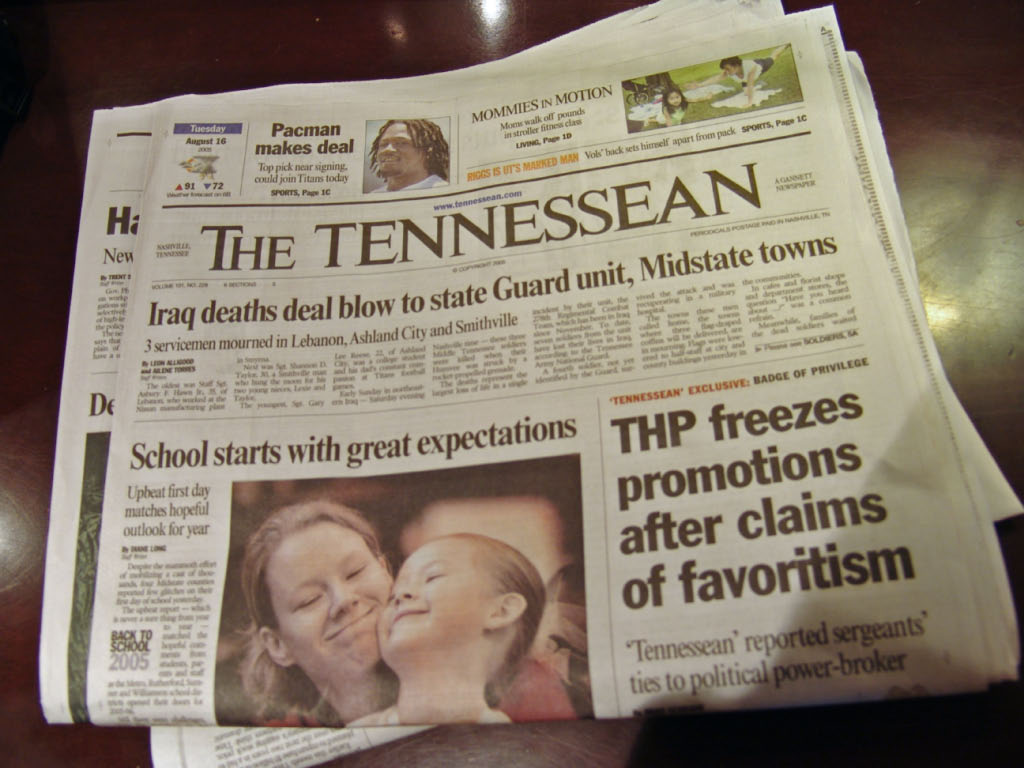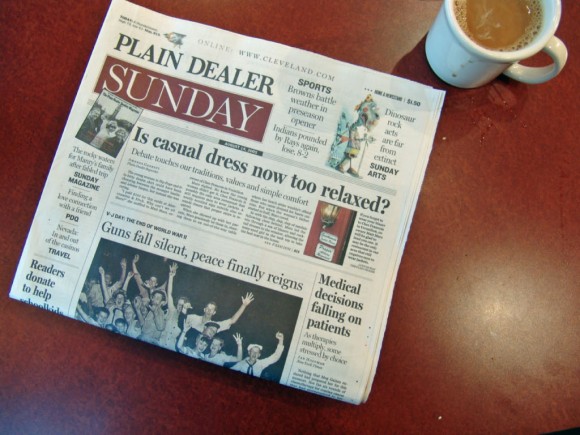One conclusion from a 10 road trip user study in US last year was that almost everything we learned, or ended up using in a meaningful way was gathered in the first 4 or 5 days of the trip. Admittedly this study was a little unusual – 100+ interviews, driving Cleveland to New Orleans, flying to Salt Lake City then continuing the drive down to Los Angeles. Without sufficient time for reflection what could be meaningful data is just noise. So what are the techniques to support documentation and reflection? A proper answer to this question will eventually appear in a research paper. One minor technique is to take photos of local newspapers. These can become a mental time and location stamp and can later be used to communicate a local flavour and issues. As you might imagine the Sunday breakfast chatter in and around Cleveland was no doubt grappling wth the weighty issue of how casual is too casual (photo above).
Given the constraints – what is an optimal and what is a sufficient amount of time to spend in the field? And if your project involves cultural comparisons – how much time is enough to rest, reflect and analyse between field trips?
There are two techniques that enable me to stay on top of things. The first is to consistently process data as it comes in – not always an easy task given the large volumes that are collected from different sources in such a short space of time. In practical terms this means assigning a field data manager to be responsible for all incoming data, scrubbing data to remove overtly private information such as birth dates or phone numbers before the files are circulated within the team and before they start to appear in internal reports. (Field data processing would make a good short paper or workshop if anyone wants to recommend a suitable conference). Another technique is simply to have a naming strategy for all files to that documents, images videos can be identified without having to open an application. Well catalogued data will be usable and can maintain its relevance weeks, months or years after its collection.
My second technique? Don’t worry about the social niceties of staying awake and make sure I get sufficient rest when the body dictates I need it. The alternative is living in a permanent state of jetlag – otherwise known as permalag, or if particularly nasty permaphuck. And that just leads to burn out.

